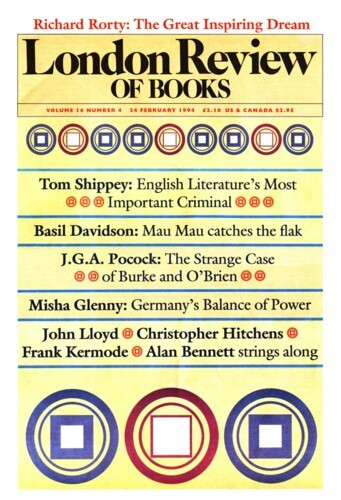How to Make a Market
John Lloyd, 10 November 1994
A growing school of thought, especially on but not confined to the Left, holds that the reform of Russia and other post-Communist states is being carried out in such a way as to destroy rather than improve them. The villains are held to be the international financial institutions (IFIs), such as the International Monetary Fund and the World Bank, and with them the economists, consultants and advisers who flocked into these states after the Fall to inscribe their new dogmas on the ruins of the old. The IMF is thought to be especially guilty. Because it extends loans to its members on conditions which are usually onerous and nearly always require a heavy curtailment of expenditure, it can easily be represented as both parsimonious and interventionist. The money is doled out a bit at a time and the country in question is almost always required to adopt neo-liberal economic principles, including balanced budgets, low inflation and a privatised industrial and services sector.





